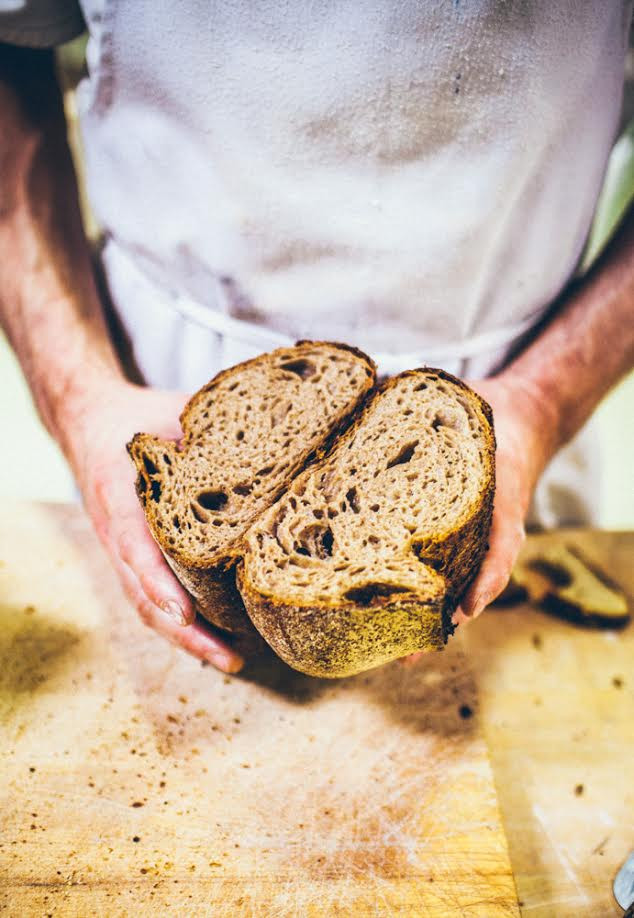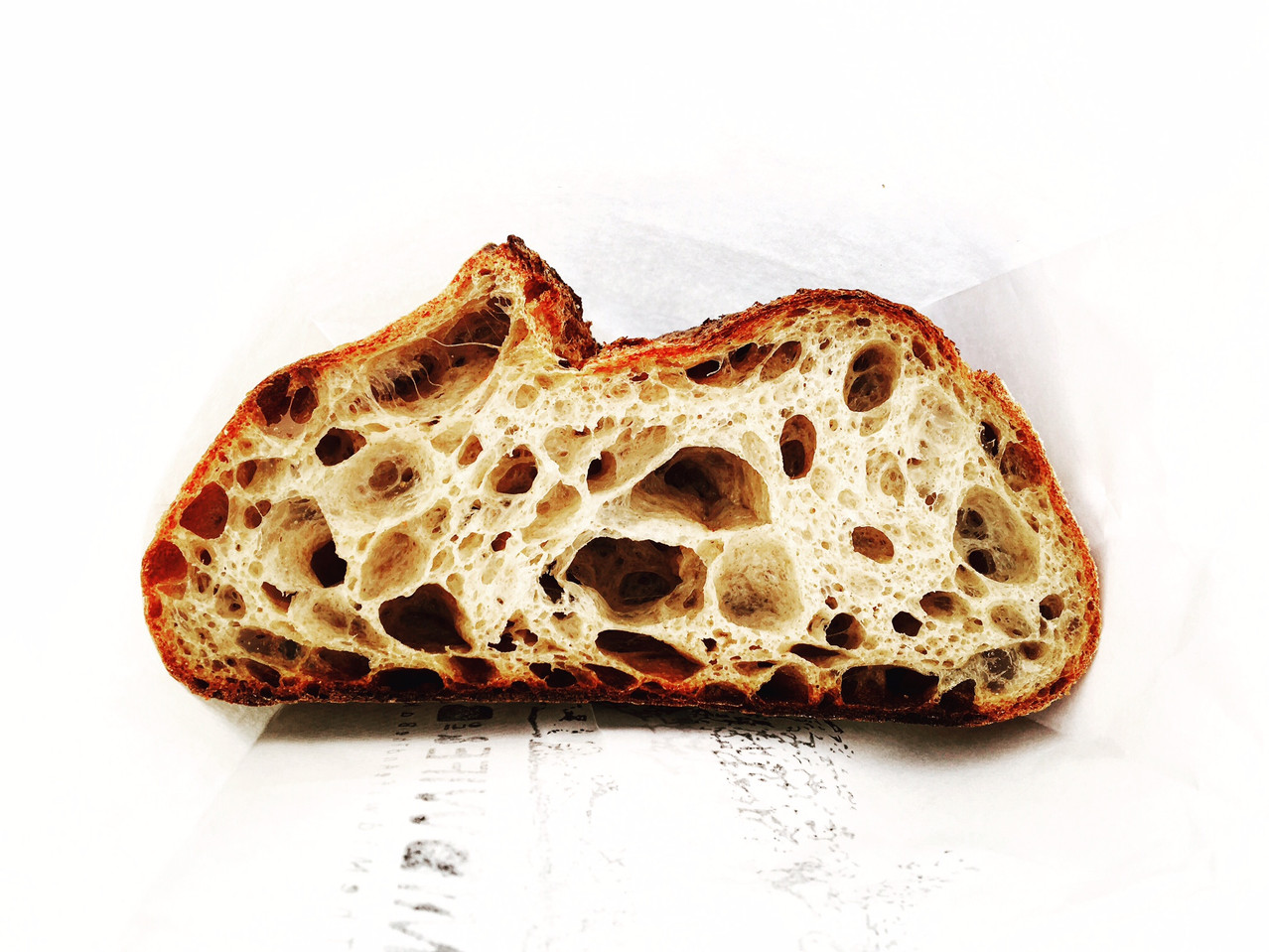Midwife And The Baker: A Tale Of Passion, Flour, And New Life
Picture this: a midwife and a baker. Two completely different worlds, yet both tied together by the magic of creation. Whether it's bringing a new life into the world or crafting a fresh loaf of bread, these roles are more connected than you might think. In this article, we dive deep into the fascinating story of the midwife and the baker—what they do, why they matter, and how their crafts can teach us about life itself. So grab your favorite beverage, sit back, and let's explore the unique bond between these two extraordinary professions.
Imagine walking into a bakery filled with the warm aroma of freshly baked bread, or welcoming a baby into the world with gentle hands and compassionate care. These experiences, though vastly different, share a common thread: the beauty of nurturing and creation. As we delve deeper into the lives of midwives and bakers, we’ll uncover the secrets behind their crafts and the profound lessons they offer.
But why should you care? Because understanding the art of creation—whether it’s life or bread—can inspire us to appreciate the little things in life. From the science of fermentation to the miracle of childbirth, this article will take you on a journey that’s both informative and heartwarming. Let’s get started!
Read also:Elephant Steps On His Trainer The Untold Story Behind The Headlines
Who Are Midwives and Bakers?
Meet the Midwife: The Guardian of Life
A midwife is more than just a healthcare professional. They are the guardians of new life, guiding mothers through one of the most transformative experiences of their lives. Midwives provide personalized care, support, and expertise throughout pregnancy, labor, and childbirth. Their role goes beyond medical assistance; they offer emotional and psychological support, creating a safe and nurturing environment for both mother and baby.
Midwives are trained professionals who specialize in pregnancy and childbirth. They work in various settings, including hospitals, birthing centers, and even at home. According to the International Confederation of Midwives (ICM), midwives play a crucial role in improving maternal and newborn health outcomes worldwide. In fact, studies show that midwife-led care reduces the need for interventions during labor and improves overall satisfaction for mothers.
Meet the Baker: The Artisan of Flour
On the other side of the spectrum, we have the baker—a craftsman who transforms simple ingredients into edible masterpieces. Bakers are the unsung heroes of the culinary world, waking up before dawn to ensure that we have fresh bread on our tables. Their work requires patience, precision, and a deep understanding of the science behind baking.
Baking is both an art and a science. It involves the careful manipulation of ingredients like flour, water, yeast, and salt to create something truly magical. From sourdough loaves to croissants, bakers bring joy to people’s lives one loaf at a time. According to the Bread Bakers Guild of America, baking is a skill that takes years to master, and each baker brings their unique touch to the craft.
The Science Behind the Craft
The Biology of Birth
Childbirth is a biological process that has fascinated humanity for centuries. Midwives are experts in this field, understanding the intricacies of the human body during pregnancy and labor. They monitor the health of both mother and baby, ensuring that everything progresses smoothly. In cases where complications arise, midwives work closely with doctors to provide the best possible care.
Did you know that the human body is designed to handle childbirth naturally? Midwives believe in the body’s innate ability to give birth without unnecessary interventions. By promoting natural methods and encouraging movement during labor, midwives help mothers achieve a more comfortable and empowering birth experience.
Read also:Zara Rahim The Rising Star In The World Of Entertainment
The Chemistry of Bread
While midwives focus on the biology of life, bakers delve into the chemistry of flour. Baking is all about understanding how different ingredients interact with each other. Yeast, for example, is a living organism that feeds on sugar and produces carbon dioxide gas, causing dough to rise. This process, known as fermentation, is what gives bread its signature texture and flavor.
Bakers also need to understand the role of gluten, a protein found in wheat flour. Gluten provides structure to the dough, allowing it to hold its shape during baking. By mastering the balance between hydration, fermentation, and gluten development, bakers create loaves that are both delicious and satisfying.
The Emotional Side of Creation
The Emotional Journey of Motherhood
Becoming a mother is one of the most emotional experiences a person can go through. Midwives understand this and provide emotional support every step of the way. They listen to the fears and concerns of expectant mothers, offering reassurance and guidance. This emotional connection is what sets midwives apart from other healthcare providers.
Studies have shown that emotional support during childbirth leads to better outcomes for both mother and baby. Women who feel supported are less likely to experience complications and are more satisfied with their birth experience. Midwives are trained to recognize the emotional needs of their clients and tailor their care accordingly.
The Emotional Rewards of Baking
While baking may seem like a purely technical skill, it also has an emotional side. Many bakers find joy and fulfillment in creating something from scratch. There’s something incredibly satisfying about kneading dough, shaping it into a loaf, and watching it rise in the oven. For some, baking is a form of therapy—a way to unwind and express creativity.
Moreover, sharing homemade bread with others can foster a sense of community and connection. Whether it’s a family gathering or a neighborhood potluck, a freshly baked loaf can bring people together. This emotional aspect of baking is what makes it so special and meaningful.
The Challenges Faced by Midwives and Bakers
Challenges in Midwifery
Despite their many accomplishments, midwives face numerous challenges in their profession. One of the biggest hurdles is overcoming societal misconceptions about their role. Many people still view midwives as outdated or unnecessary, preferring to rely solely on doctors for childbirth. This stigma can make it difficult for midwives to gain recognition and respect for their work.
Additionally, midwives often work long hours and are on call 24/7. They must be prepared to drop everything at a moment’s notice when a mother goes into labor. This demanding schedule can take a toll on their physical and mental health, making self-care an essential part of their routine.
Challenges in Baking
Bakers, too, face their fair share of challenges. The early morning hours and long days can be grueling, especially for those who run their own businesses. Bakers must also contend with fluctuating ingredient costs and the constant pressure to innovate and create new products.
Another challenge is maintaining consistency in their craft. Every batch of dough is different, and even the slightest variation in temperature or humidity can affect the final product. This requires bakers to be adaptable and resourceful, constantly adjusting their techniques to achieve the desired results.
The Art of Patience
Patience in Midwifery
Patience is a virtue that both midwives and bakers must cultivate. In midwifery, patience means trusting the process of birth and allowing it to unfold naturally. Midwives understand that every labor is unique and requires its own timeline. Rushing the process can lead to unnecessary interventions and complications.
By practicing patience, midwives create a calm and supportive environment for mothers. This helps reduce stress and anxiety, which can have a positive impact on the birth experience. Patience also allows midwives to observe and respond to subtle changes in the mother’s condition, ensuring that any issues are addressed promptly.
Patience in Baking
In baking, patience is just as important. Rushing the fermentation process or skipping crucial steps can result in a subpar loaf. Bakers must allow the dough to rise slowly, giving the yeast time to work its magic. This waiting period can be frustrating, especially when deadlines loom, but it’s essential for achieving the best possible results.
Patience also extends to learning and improving one’s craft. Bakers are always striving to refine their skills, experimenting with new recipes and techniques. This dedication to growth and improvement is what makes baking such a rewarding profession.
Lessons from the Midwife and the Baker
Both midwives and bakers teach us valuable lessons about life and creation. They remind us that everything worth having takes time, effort, and care. Whether it’s bringing a new life into the world or crafting a perfect loaf of bread, the process is just as important as the outcome.
Midwives and bakers also emphasize the importance of community and connection. They understand that their work is not just about the individual but about the people they serve. By fostering trust and building relationships, they create a supportive network that benefits everyone involved.
Midwife vs Baker: A Comparison
While midwives and bakers may seem worlds apart, they share many similarities. Both professions require a deep understanding of their craft, a commitment to excellence, and a passion for helping others. Here’s a quick comparison:
- Role: Midwives guide mothers through childbirth, while bakers create delicious bread.
- Skills: Midwives need medical expertise, while bakers require knowledge of baking science.
- Impact: Both professions bring joy and fulfillment to people’s lives.
The Future of Midwifery and Baking
As we look to the future, both midwifery and baking are evolving. Advances in technology and research are enhancing the quality of care provided by midwives, while new techniques and ingredients are expanding the possibilities for bakers. Despite these changes, the core values of both professions remain the same: to nurture, create, and inspire.
Midwives and bakers alike are embracing innovation while staying true to their roots. They understand that progress doesn’t mean abandoning tradition but rather building upon it to create something even better. This forward-thinking mindset ensures that both professions will continue to thrive for generations to come.
Conclusion
In conclusion, the midwife and the baker may come from different worlds, but they share a common purpose: to bring new creations into the world. Whether it’s a baby or a loaf of bread, their work is a testament to the power of creation and the beauty of life itself.
So the next time you enjoy a fresh loaf of bread or welcome a new baby into your family, take a moment to appreciate the hard work and dedication of the midwives and bakers who made it possible. And if you’re inspired by their stories, why not try your hand at baking or learn more about midwifery? Who knows, you might discover a new passion along the way!
Don’t forget to share this article with your friends and family, and let us know what you think in the comments below. Together, we can celebrate the art of creation in all its forms!
Table of Contents
- Who Are Midwives and Bakers?
- The Science Behind the Craft
- The Emotional Side of Creation
- The Challenges Faced by Midwives and Bakers
- The Art of Patience
- Lessons from the Midwife and the Baker
- Midwife vs Baker: A Comparison
- The Future of Midwifery and Baking
- Conclusion
Kestie Morassi: The Rising Star Of The Modeling World
Bamba Swim: The Ultimate Guide To Your Beach Day Adventure
Step Up Your Style Game With GB's Shoes
Flour Power The Rise of The Midwife & The Baker Edible Silicon Valley

the MIDWIFE and the BAKER

the MIDWIFE and the BAKER